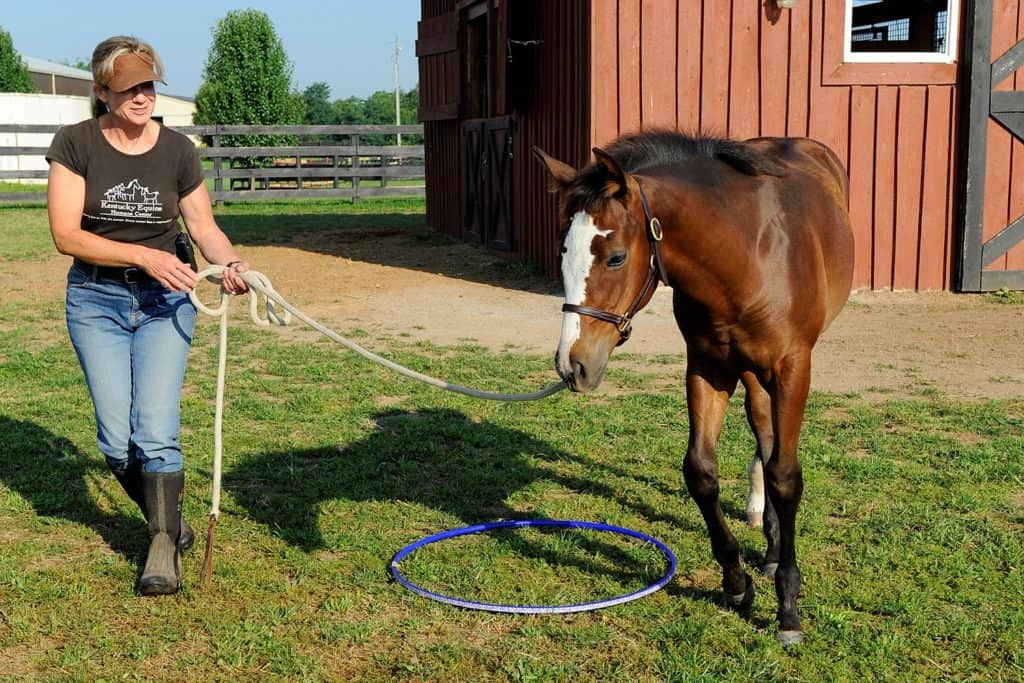Study: Young Foals can Learn Basic Handling Skills

However, each foal learns at a different rate, and breeders should be aware that learning differences are normal and not a cause for frustration, said Leigh M. Wills, BSc. Accompanied by study co-author Andrew McLean, PhD, of the Australian Equine Behaviour Centre, Wills presented her work during the 2016 International Society for Equitation Science (ISES) conference, held June 23-26, in Saumur, France.
“Training using the 10 ISES training principles was successful for all foals in our study,” Wills said. The 10 ISES training principles are guidelines for horse training developed by leading equitation science researchers, founded on learning theory—the science of how horses learn and respond to training.
Using the principles described on the ISES website, Wills and her fellow researchers taught basic handling skills to 56 Thoroughbred foals from one stud between the ages of 3 and 6 weeks. “This corresponds to the critical socialization phase, in which young horses seem to be naturally more open to being handled by humans,” she said
Create a free account with TheHorse.com to view this content.
TheHorse.com is home to thousands of free articles about horse health care. In order to access some of our exclusive free content, you must be signed into TheHorse.com.
Start your free account today!
Already have an account?
and continue reading.

Written by:
Christa Lesté-Lasserre, MA
Related Articles
Stay on top of the most recent Horse Health news with















